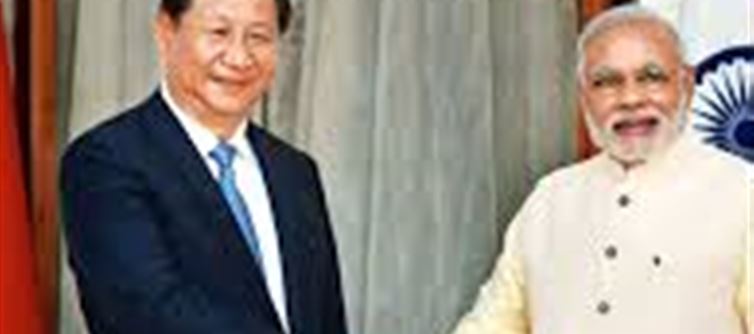First Visit to china Since 2020—A Diplomatic Reset: This marks PM Modi’s first visit to
china in over seven years, and notably since the
2020 Galwan Valley border clash, making it a significant step toward thawing strained relations.
Strong Symbolism Amid Shifting Global Alignments:
The summit, hosted by Xi
jinping in Tianjin from
august 31 to
september 1, 2025, is being leveraged by
china as a platform to project solidarity among Global South nations amid rising friction with Western powers. Modi's presence reinforces India's role in shaping this geopolitical narrative.
Potential Revival of the RIC Troika (Russia-India-China):
Discussions at the summit may reenergize the "RIC" framework—a strategic grouping among
india,
russia, and
china formed during the Cold War—especially relevant now, as
india seeks balance amid escalating US pressure.
.jpg)
Largest SCO Meeting Ever—Prime Real Estate for Diplomacy:
With over 20 heads of state and leaders from 10
international bodies in attendance, it is set to be the largest SCO summit since its inception in 2001. This gives
india significant diplomatic visibility and leverage.
Opportunity for Strategic Bilateral Engagements:
PM Modi is slated to hold key bilateral talks with Xi
jinping and Vladimir Putin, allowing for direct dialogues on border issues, trade, and regional security—critical given recent improvements in India–China and India–Russia relations.
Balancing Diplomacy Amid U.S. Trade Tensions:
India's strained ties with the U.S., driven by rising tariffs and geopolitical friction, make engagement with SCO partners like
china and
russia an increasingly strategic counterbalance for New Delhi.
PM Modi’s presence at the SCO Summit is far from ceremonial. It represents:
A gesture toward normalizing ties with China.
Strengthening influence in a multilateral bloc that’s gaining global traction.
Strategic maneuvering amid shifting alliances and trade tensions worldwide.

.jpg)





















.jpg)